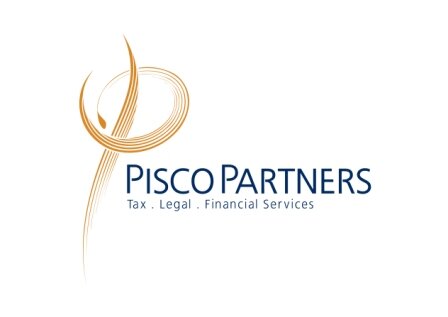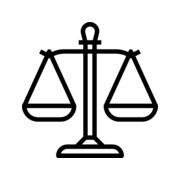Best Energy Regulatory Law Lawyers in Malta
Share your needs with us, get contacted by law firms.
Free. Takes 2 min.
Or refine your search by selecting a city:
List of the best lawyers in Malta
About Energy Regulatory Law in Malta
Energy Regulatory Law in Malta governs the generation, transmission, distribution, and supply of energy within the islands. This body of law is designed to balance the interests of consumers, industry operators, and the environment. It ensures that energy providers comply with national and European Union standards for safety, reliability, and sustainability. The sector is closely regulated, with both public and private entities required to obtain licenses and adhere to strict operational guidelines established by regulatory authorities, such as the Regulator for Energy and Water Services (REWS).
Why You May Need a Lawyer
Individuals and businesses may need a lawyer specializing in Energy Regulatory Law for several reasons. If you are planning to start an energy-related business, such as operating a renewable energy installation or managing energy distribution, you will need to navigate complex licensing requirements. Legal challenges may also arise when entering into energy supply contracts, disputing tariffs, or addressing regulatory compliance matters. Homeowners and developers seeking to install solar panels or participate in feed-in tariff schemes often require legal advice to understand their rights and obligations. A lawyer’s expertise is valuable for resolving disputes with energy providers, ensuring adherence to environmental laws, and handling regulatory investigations or enforcement actions.
Local Laws Overview
Malta’s energy regulation framework is primarily governed by the Regulator for Energy and Water Services Act, the Energy and Water Utilities Act, and laws implementing European Union directives on renewable energy, energy efficiency, and environmental sustainability. Key aspects include mandatory licensing for production and distribution, monitoring of tariffs and prices, and strict rules on environmental protection. Special attention is given to the promotion of renewable energy, with incentives and obligations for both commercial and domestic actors. The regulatory framework is periodically updated to align with Malta’s commitments to EU climate targets and policies.
Frequently Asked Questions
What body regulates the energy sector in Malta?
The primary regulator is the Regulator for Energy and Water Services (REWS), which oversees licensing, tariff regulation, and market compliance for energy and water services.
Do I need a license to generate energy for personal or commercial use?
Yes, most energy generation activities, including commercial renewables and certain domestic installations, require a license or authorization from REWS. There are some exemptions for small-scale residential systems, but these must still follow notified standards.
How are energy tariffs set in Malta?
Energy tariffs are subject to oversight by REWS. The regulator considers operational costs, government policies, and consumer protection principles when approving tariffs proposed by energy providers.
Can I sell excess electricity from my solar panels to the grid?
Yes, Malta supports feed-in tariff schemes for renewable energy producers, allowing them to sell surplus electricity to the national grid under specific terms and subject to government-approved rates.
What are the penalties for non-compliance with energy regulations?
Penalties may include administrative fines, suspension or revocation of licenses, and, in severe cases, criminal prosecution. The severity depends on the nature and scale of the violation.
Are there financial incentives for using renewable energy in Malta?
Yes, the Maltese government offers grants, feed-in tariffs, and tax incentives for residential and commercial investment in renewable energy technology, subject to certain eligibility criteria.
How does energy regulatory law differ for domestic and commercial users?
Commercial users are typically subject to stricter regulations, including licensing, reporting, and environmental compliance, while domestic users often benefit from simplified procedures and certain exemptions.
What legal steps are involved in starting an energy business in Malta?
Starting an energy business requires applying for appropriate licenses from REWS, complying with technical and safety standards, securing environmental permits, and ensuring consumer protection measures are in place.
Can I challenge a decision made by the energy regulator?
Yes, parties affected by a regulatory decision may appeal through an administrative review process and, if necessary, seek legal recourse in Malta’s courts.
Does Malta follow European Union energy directives?
Yes, Maltese law is closely aligned with European Union directives on energy markets, renewable energy, and environmental sustainability. Compliance is mandatory for all operators within Malta.
Additional Resources
For those seeking further information or assistance, the following organizations and bodies can be valuable resources:
- Regulator for Energy and Water Services (REWS): Primary authority for energy regulation, licensing, and consumer protection. - Ministry for Energy, Enterprise and Sustainable Development: Provides policy guidance and updates on national initiatives. - Malta Chamber of Commerce: Offers seminars and information on developments in the energy sector. - European Union Energy Portal: Useful for understanding EU-wide rules that impact Malta. - Environment and Resources Authority (ERA): Regulates environmental permits for energy projects. - Local legal aid providers: For those who may require free or low-cost legal representation.
Next Steps
If you believe you need legal advice regarding Energy Regulatory Law in Malta, start by clearly defining your issue or goal, such as licensing, contract review, dispute resolution, or regulatory compliance. Gather any relevant documents and details about your situation. Consult with a qualified Maltese lawyer specializing in energy or administrative law for a professional assessment of your case. Most law firms offer initial consultations and can outline your options, potential risks, and estimated costs. It may also be useful to reach out to REWS for clarification on regulatory processes before engaging in any major business or infrastructure decisions. Taking proactive legal advice ensures you avoid costly mistakes and operate within the law at all times.
Lawzana helps you find the best lawyers and law firms in Malta through a curated and pre-screened list of qualified legal professionals. Our platform offers rankings and detailed profiles of attorneys and law firms, allowing you to compare based on practice areas, including Energy Regulatory Law, experience, and client feedback.
Each profile includes a description of the firm's areas of practice, client reviews, team members and partners, year of establishment, spoken languages, office locations, contact information, social media presence, and any published articles or resources. Most firms on our platform speak English and are experienced in both local and international legal matters.
Get a quote from top-rated law firms in Malta — quickly, securely, and without unnecessary hassle.
Disclaimer:
The information provided on this page is for general informational purposes only and does not constitute legal advice. While we strive to ensure the accuracy and relevance of the content, legal information may change over time, and interpretations of the law can vary. You should always consult with a qualified legal professional for advice specific to your situation.
We disclaim all liability for actions taken or not taken based on the content of this page. If you believe any information is incorrect or outdated, please contact us, and we will review and update it where appropriate.
Browse energy regulatory law law firms by city in Malta
Refine your search by selecting a city.














